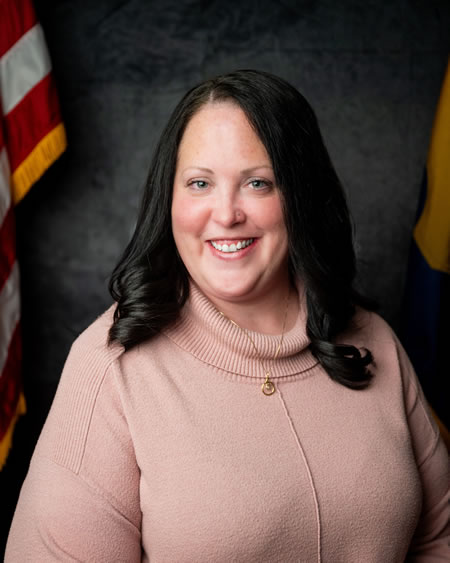
NICKI S. GOTTSCHALL, CONTROLLER
Office Location:
Third Street Plaza
33 West Third St., 3rd Floor
Williamsport, PA 17701
Mailing Address:
Controller's Office
48 West Third St.
Williamsport, PA 17701
Phone: 570-327-2298
Fax: 570-327-2446
Email:
nbrelsford@lyco.org
The mission statement of the Lycoming County Controller's Office is "to ensure the county's financial integrity and to promote efficient, effective, and accountable government. The office strives to be a model for good government and to make the County a better place."
The Controller's Office is responsible for auditing the departments of the county, processing of accounts payable, processing of payroll, management of the general ledger, contract management and the supervision and administration of the day to day operations of the County's retirement plan. The Controller is a member of the Salary Board (Secretary), the Retirement Board (Secretary) and the Prison Board.
Nicki Gottschall assumed the Controller’s duties as of January 13, 2025. Nicki was born and raised in Lycoming County. Nicki graduated from Loyalsock Township High School and has a Bachelor’s degree in Business Administration with a concentration in Human Resource Management from the Pennsylvania College of Technology. Nicki has been with the Controller’s Office for more than 17 years, starting as a Clerk, then as an Internal Auditor and has served as the Deputy Controller for just over 10 years. Nicki is a 2015 graduate of Leadership Lycoming, was a past president of the Williamsport/Lycoming Young Professionals, served on the Board of Directors for the Lycoming County Bowling Congress and served on the Red Cross Heroes Breakfast Committee.
Pennsylvania County Code, Section 1702 and 1705 – “Functions of the Controller – Subject to the power and duty of the county commissioners to manage and administer the fiscal affairs of the county, the controller shall supervise the fiscal affairs of the county including the related accounts and official acts of all officers or other persons who shall collect, receive, hold or disburse, or be charged with the management or custody of, the public assets of the county. The discretionary powers of the controller shall be applicable to matters or official acts involving the accounts and transactions of officers or other persons of the county. The controller shall maintain a full and regular set of financial records, including the general ledger, in electronic form or otherwise, which support financial statement in accordance with generally accepted accounting principles of all the fiscal operations of the county, embracing as many accounts, under appropriate titles, as may be necessary to meet Federal and State reporting requirements and to show distinctly and separately all the property of the county, its revenue and expenditures, and all debts and accounts due by the county officers or others, and the amount raised from each source of revenue, and the expenditures in detail, and classified by reference to the objects thereof. The controller shall select and administer the form and manner of maintaining the official financial records in connection with the fiscal affairs of the county. Where the controller prescribes a change in the form and manner of maintaining the official financial records, any costs necessary for implementation shall be subject to the approval of the county commissioners.”